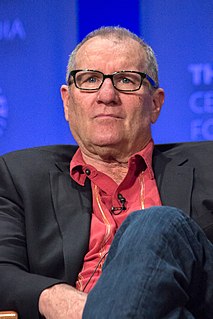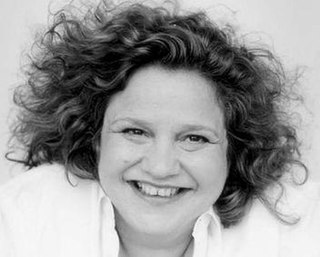A Quote by Edward Albee
Curiously enough, the only two plays that I've done very much revision on were the two adaptations - even though the shape of them was pretty much determined by the original work. With my own plays, the only changes, aside from taking a speech out here, putting one in there (if I thought I dwelled on a point a little too long or didn't make it explicit enough), are very minor; but even though they're very minor - having to do with the inability of actors or the unwillingness of the director to go along with me - I've always regretted them.
Related Quotes
I would change very little because I have been very, very fortunate. A lot of things fell into place for me simply by happenstance. When that happens you don't really want to change anything, even if you could. Editorially my regrets are few and for the most part minor. I look back on my first published book and think I held on to it too long, babied it too long.
I think that humans are also set up to survive. We're not as small as rats, but we make up for that by being intelligent enough to make our own hiding places and to adapt to new habitats, even if they are changing very quickly. We have an enormous population, and can afford to lose billions of people without suffering very much as a species. Indeed, some would say losing five billion people would be good for the planet - I disagree with them, but can't deny that we would do just fine if there were two billion of us or even one billion.
Making movies is a very different experience in a lot of ways. It's difficult when you're used to owning the copyright and having a landlord's possessory rights - I rent my plays to the companies that do them and, if I'm upset, I can pull the play. But the only two directors I've worked with are pretty great.
In high school, I got into a speech class run by a nun who used to put on plays. She put me in a oratorical competitive program. You would tell a story, and they were very corny, something like 'My Childhood Hero.' It was something out of 'Readers Digest.' I always thought it was too much and too dramatic.
I'm pretty good at inventing phrases - you know, the sort of words that suddenly make you jump, almost as though you'd sat on a pin, they seem so new and exciting even though they're about something hypnopaedically* obvious. But that doesn't seem enough. It's not enough for the phrases to be good; what you make with them ought to be good too.
Every so often I take out a volume and read a page or two. After all, reading is looking after in a manner of speaking. Though they're not old enough to be valuable for their age alone, nor important enough to be sought after by collectors, my charges are dear to me, even if, as often as not, they are as dull on the inside as on the outside. No matter how banal the contents, there is always something that touches me. For someone now dead once thought these words significant enough to write them down.
When I’m a Duchess,” she said to herself (not in a very hopeful tone though), “I won’t have any pepper in my kitchen at all. Soup does very well without. Maybe it’s always pepper that makes people hot-tempered,” she went on, very much pleased at having found out a new kind of rule, “and vinegar that makes them sour—and camomile that makes them bitter—and—and barley-sugar and such things that make children sweet-tempered. I only wish people knew that; then they wouldn’t be so stingy about it, you know—
There is a terrific disadvantage in not having the abrasive quality of the press applied to you daily. Even though we never like it, and even though we wish they didn't write it, and even though we disapprove, there isn't any doubt that we could not do the job at all in a free society without a very, very active press.
I very much write from characters. Those people start speaking, and then I have them in the house with me and I live with them. Then at some point, it's time to get them out of the house. You can only live with someone like Dr. Georgeous Teitelbaum from THE SISTERS ROSENSWEIG for so long, and then it's time for her to go. But it is very like having the company of these people and trying to craft them in some way into a story.
I think I always disappoint people, because they always expect someone very pretty. Very done. There’s so much pressure to be thin, blonde and busty. I’m skinny, but even I couldn’t fit into some of the clothes in L.A! In a funny kind of way, I think you create it yourself. I think it’s much better to go with the flow and embrace your body, whatever shape it is, and just be happy.





































